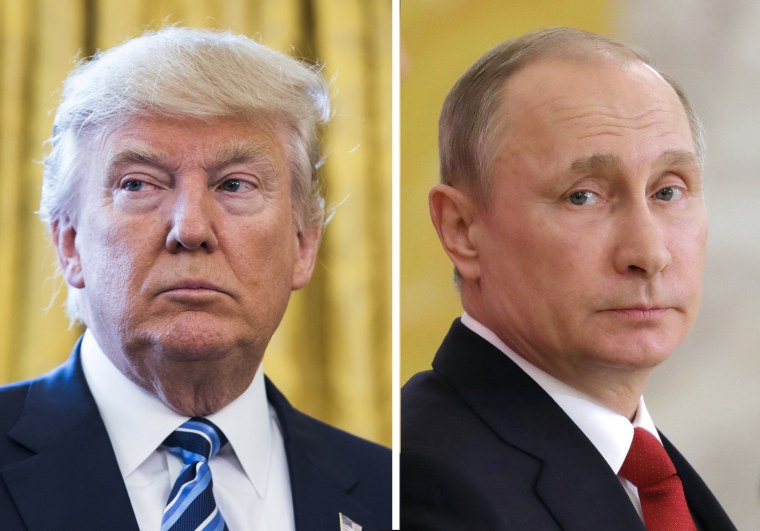To appreciate the strength of partisan tribalism in contemporary politics, consider the evolution of Republican voters' attitudes towards Russia. The U.S. adversary and its autocratic leader were quite unpopular in GOP circles for many years --
right up until Donald Trump started praising the Russian leader and benefiting from Vladimir Putin's support.As recently as 2014, a CNN poll found that only 16% of Republican voters saw Russia as an ally. The same poll found last week that
56% of Republican voters now see Putin's government as friendly.On a related note, the CNN poll asked Americans about the Russia scandal, and the possibility that Trump's team colluded with our adversary while Moscow launched an illegal espionage operation to attack our democracy. The results found that
one-in-five Republicans wouldn't care if such collusion took place, while 44% of GOP voters would see this as a "minor problem."It's against this backdrop that the president still struggles to speak coherently about the underlying controversy. On "Face the Nation" yesterday, CBS's John Dickerson asked Trump about the Russia scandal, and the president immediately started repeating a series of odd talking points -- which he seemed to consider highly important -- that didn't make any sense, before eventually
saying:
"[K]nowing something about hacking, if you don't catch a hacker, okay, in the act, it's very hard to say who did the hacking. With that being said, I'll go along with Russia. Could've been China, could've been a lot of different groups."
Even now, Trump can't bring himself to acknowledge basic details about the controversy.On a related note, in a Fox News interview that aired on Friday, Trump was asked about the challenges of passing his legislative priorities with a low approval rating, which led the president to start complaining about "made-up stories like Russia."
"I call it the fake Russia story. Russia story was made up because the -- they were embarrassed by their loss. They had this tremendous loss, a loss like nobody has ever seen before. The Democrats should never lose the Electoral College because they automatically start with New York, California, and Illinois. It's impossible for Republican to win. And not only did I won I won easily."So they made up this Russia thing to try and deflect because they're embarrassed by what happened. The Russia is a phony -- what do you see is the Russia story? The Russia story. And you see all of these other phony stories. It's so bad and for me to have great approval ratings in light of all the faux press and the fake press I think is amazing."
For now, let's put aside the fact that Trump
does not actually have "great approval ratings," and his claims about the nature of the election results are completely detached from reality. Instead, let's focus on the timeline of events.The Russia scandal broke during the 2016 campaign, and the FBI began its counter-espionage investigation in July 2016. In Trump's mind, the entire controversy was a reaction to his unexpected election victory in November 2016, which only makes sense if everyone involved in this story collectively had access to a time machine.
